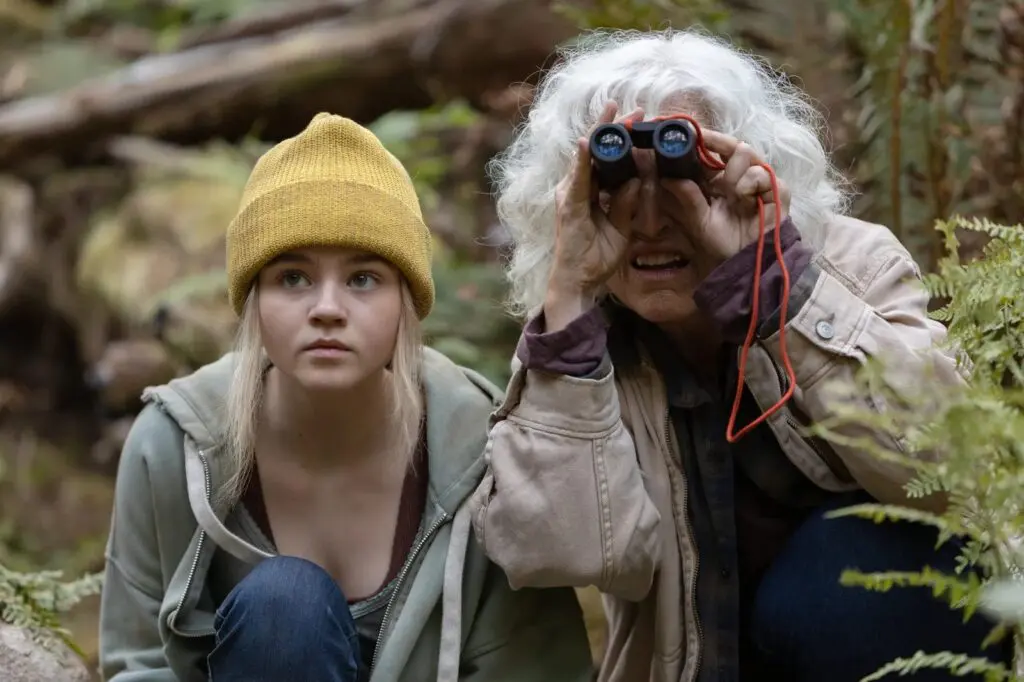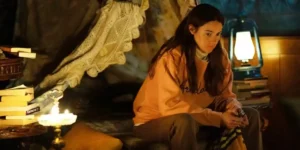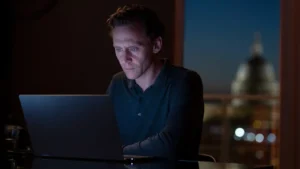Penelope is a show in which almost nothing happens, so while watching it I didn’t anticipate the need to “explain” anything, not regarding the ending or, frankly, anything else. But then Episode 8 chose to close out with a reveal that raised a few potentially interesting questions about the whole thing. Some of them might even go some way toward explaining why Penelope bothered to go on her journey of survivalist self-discovery in the first place.
That’s a point, as it happens. The show — from Mark Duplass and Mel Eslyn and streaming on Netflix, though seemingly created entirely for the festival circuit where it debuted — is predicated on the idea of nobody, including Penelope, knowing why our protagonist does any of the things she does. Even by the end, we still don’t know, but we are given a suggestion, even though there are things that disprove my theory on it. So, take everything that follows with a grain of salt. It’s easier that way.
The Wilderness Life Catches Up To Penelope
At the end of the season, after being hospitalized after a cougar attack and other associated wilderness traumas, Penelope finds herself in hospital. Thanks to the efforts of an unrealistically accommodating social worker named Jen, she’s promptly released back into the world after four days in the ICU, with her care paid for and nobody having been informed about her whereabouts. She does, however, leave Jen the contact details of her family in the event of her death.
From this, we’re to assume that Penelope has resolutely decided to settle in the wild and leave her previous life behind, despite seeming to have second thoughts in the penultimate episode. Why would a 16-year-old do this? Hasn’t she arrived at the conclusions she was looking for during her journey? Well, we don’t quite know since she never really articulated them.
But Penelope wanders all the same. She helps an old man chop wood and sleeps on his couch in another of an increasingly long list of terribly ill-advised decisions that would no doubt backfire in real life. When the man, Eugene, gives her the opportunity to use his phone to make a long-distance call, Penelope calls her mother but is taken straight to voicemail.
Finally, Penelope visits the library to use the internet, which is where things get weird.
The Ending of ‘Penelope’ Implies Grief Is A Motivating Factor
Penelope checks the news, and her emails, searches for information on religious hikes — we know what she’s up to there — and, finally, checks her social media. This is where the show ends, with Penelope scrolling through the urgent messages people have left her imploring her to come back home, and then, climatically, a picture of her parents with a message implying that they’re dead.
It’s hard to tell from Megan Stott’s performance if this is supposed to be a shock to her or not. I suppose it would be either way, but her reaction doesn’t seem to me to be that of someone hearing this news for the first time, but more of someone being reminded of it. And this is my theory. I think that Penelope’s parents had already died when the show began and that her adventure was about her coming to terms with her grief.
Let me stop you there. I know what you’re thinking. We saw Penelope texting her mother at the start of the season, and she messaged back. We saw Penelope leaving her a voice note, which she wouldn’t bother to do if she knew her parents weren’t alive to receive it. Yet in a show where Penelope has met nothing but cartoon-friendly wildlife and angelic strangers who wanted nothing more than to help her, are we really going to start making calls to realism?
If this was the truth of the matter then I think, in hindsight, it’d be the kind of twist to retroactively improve the entire show. I quite like the idea of Penelope having been on a legitimate spiritual journey with the people she has met having been outgrowths of her trauma and anxieties. I like the idea of each step on that journey having been designed for Penelope to better understand how to cope with loss, and it introduces the idea that perhaps some of it was entirely fictional. The sanitized approach to the drama would make sense as the psyche of a teenager trying to imagine a kinder, more accommodating world than the real one that has wrenched her parents away from her.
Of course, there’s every chance that this scene was Penelope finding out about the death of her parents for the first time and that the rest of the show was, as I implied in my review, just a load of rubbish. But a guy can dream, can’t he?




